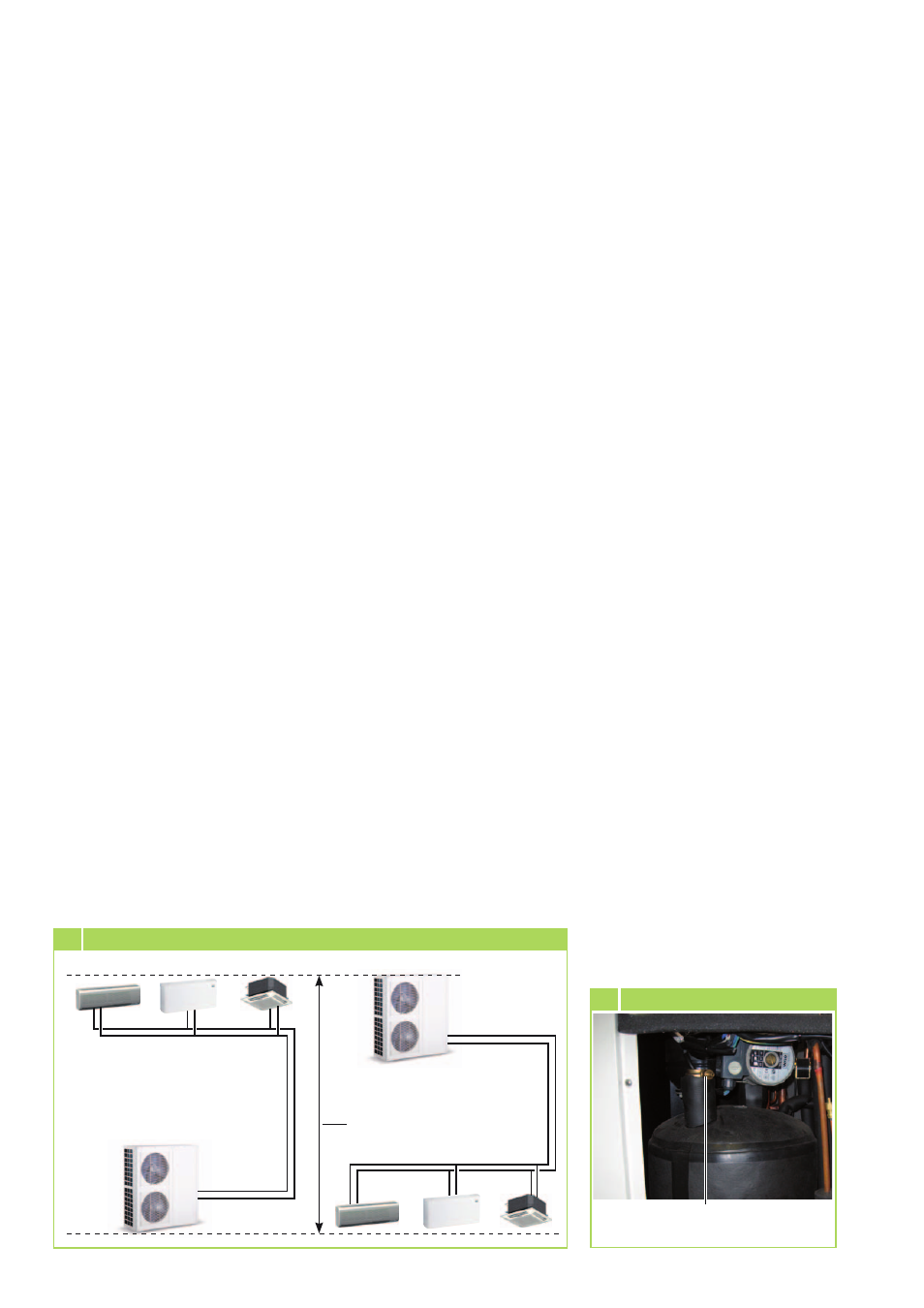Remko rvs...h (inox), Leak testing, Before commissioning – REMKO RVS 60 H User Manual
Page 32

Leak testing
Leak testing is carried out after all
the pipes and fittings have been
connected.
1. Flush the system twice with
water.
2. Clean the sieve insert of the dirt
trap provided by customer.
3. Fill the system with water again
and vent the system at the
manual air bleeder.
4. Adjust the test pressure to
250 kPa (2.5 bar).
5. Check the connections after a pe-
riod of 24 hrs for leaking water.
If water is visible, the connection
has not been secured.
Tighten the connection or make a
new connection.
6. After a successful leak test, re-
move the excess pressure from
the medium line. If a water-
glycol mixture is used, adjust
the non circulating pressure as
required.
Before
Commissioning
Filling the system
The system is filled on-site at the
filling and draining connection.
Frost protection for the medium
If a water-glycol mixture is used,
it is to be pre-mixed before being
put in the system. The desired con-
centration is then to be checked.
Unit preliminary pressure for the
medium
The preliminary pressure of the
medium (without operation of the
circulation pump) varies within
the system. From the highest
point, the pressure increases by
approx.10 kPa (0.1bar) per metre
difference in altitude (geodetic al-
titude). The value measured at the
highest point is identified as the
none circulating pressure.
The position of the unit in the
system is decisive in the calculation
of the unit’s preliminary pressure
(pressure of the manometer on
the unit installed by the customer).
The pressure is to be set to at least
70 kPa (0.7 bar).
Bleeding the system
■
Air may still be in the pipe
lines after the leak test. This is
carried during operation of the
circulation pump to the next
highest point or to the cold
water drain. Here it is necessary
to vent again (Figure 10).
■
Also bleed the pump if
necessary.
■
The non-circulating pressure
must then be adjusted to the
required system pressure.
10 Manual bleeding
Manual
bleeder
9 Unit preliminary pressure
Geodetic
System altitude
Unit preliminary
pressure
Unit preliminary
pressure
Non-circulating
pressure
■
If the unit is positioned at the
lowest
point in the system, the
unit preliminary pressure
(=non-circulating pressure +
geodetic system altitude) must
be set to at least 70 kPa (0.7
bar) + 10 kPa (0.1bar) x geo-
detic altitude.
■
If the unit is positioned at the
highest
point in the system, the
unit preliminary pressure
(=non-circulating pressure)
must be set to at least 70 kPa
(0.7 bar).
Please note that the system’s
pressure at the lowest point
is increased by the geodetic
altitude!
REMKO RVS...H (INOX)
32
